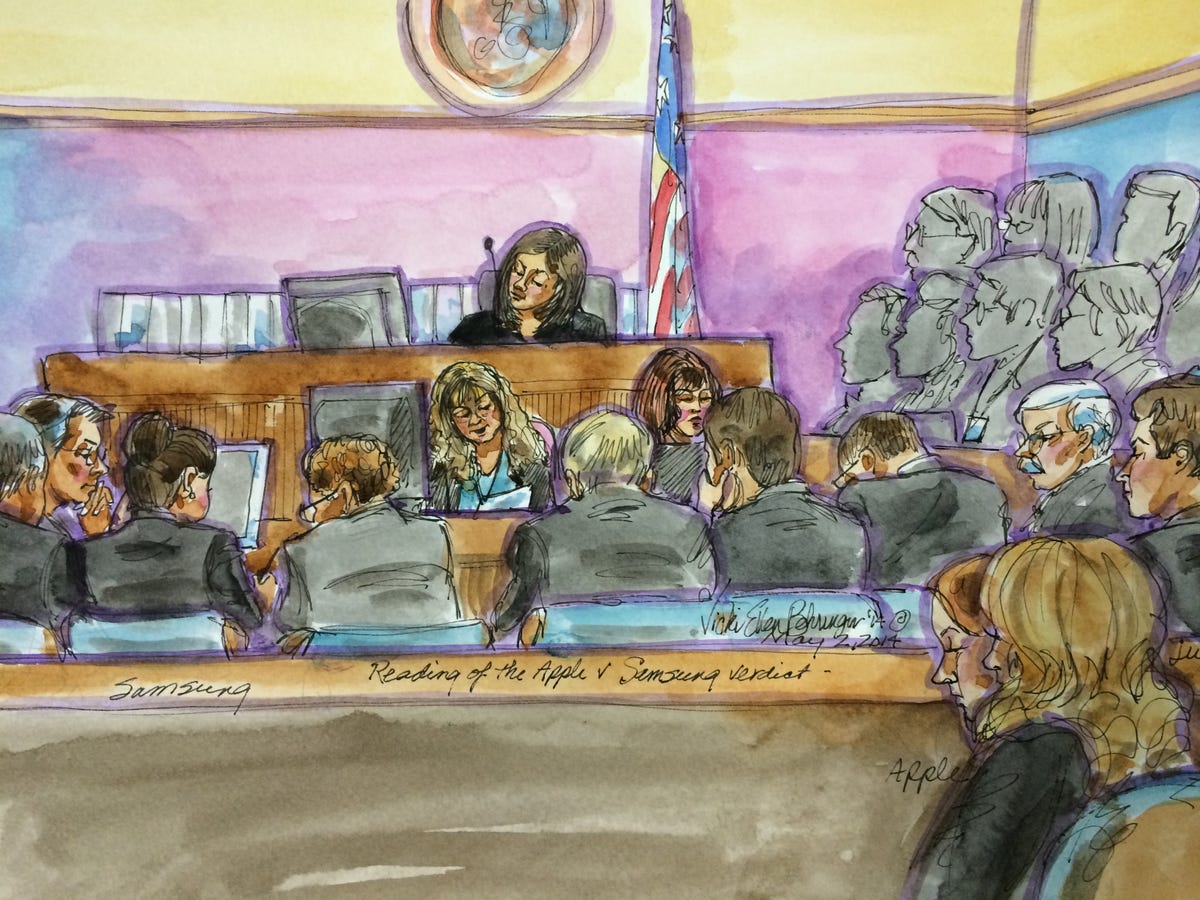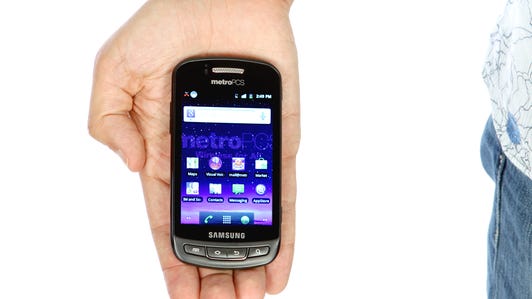
Vicki Behringer
Apple and Samsung each won damages in the most recent round of their patent-infringement fight. But their victories, deemed modest by legal experts, may have come at a far greater cost, hurting the image and reputation of the world’s leading makers of mobile devices.
An eight-person jury on Friday returned a mixed verdict in this year’s Apple v. Samsung patent-infringement case over patents related to their smartphones and tablets. Samsung was found to have infringed three of Apple’s five patents at issue and was ordered to pay $119.6 million, much less than the $2.2 billion sought by the maker of the iPhone. At the same time, Apple was found to have infringed one of Samsung’s two patents and ordered to pay $158,400. Samsung was asking for $6.2 million.
“You can look at this as both sides won or both sides lost,” said Pierre R. Yanney, a patent attorney and partner at Stroock & Stroock & Lavan. “Apple won on infringement but got one-tenth of what it wanted. Samsung lost on infringement but cut the damages down by 90 percent.”
Jurors return to court on Monday to hash out damages that Samsung owes Apple over one device.
See also
- Verdict: Apple, Samsung win some, lose some in patent case
- Apple v. Samsung 2014 infringed devices scorecard
- Samsung to jury: You can’t copy iPhone features that aren’t in the iPhone
- Apple makes final pitch in patent infringement case against Samsung
- Apple v. Samsung: All you need to know about latest patent trial (FAQ)
While it wasn’t a clear-cut win for either company, Friday’s verdict also wasn’t the overwhelming defeat Samsung faced in 2012. By awarding Apple less than 10 percent of the damages it wanted, the jury of mostly tech novices, which deliberated for three full days after a four-week trial, sent a much different message than the prior trial that netted Apple nearly $1 billion. Samsung surely feels relieved by the outcome, though it still was deemed a copycat in some respects. And Apple, which was vindicated in some of its accusations, probably believes Samsung’s punishment is too light.
On Friday, Apple said the ruling showed that “Samsung willfully stole our ideas and copied our products. We are fighting to defend the hard work that goes into beloved products like the iPhone,” Samsung said it would wait to comment until the jury is done deliberating.
The long-running spat doesn’t exactly reflect well on either company. Apple and Samsung are two of the most secretive companies in the technology industry, with little known about the inner workings of their operations or about executives’ private comments — until the recent patent cases. Each side presented damning evidence about its rival and used its competitor’s words, taken from emails and internal presentations including competitive analysis and marketing documents, against it. That included former Apple CEO Steve Jobs’ determination to launch a mobile operating system, which powers Samsung’s smartphone, and a plan by a Samsung executive to use Jobs’ death in 2011 as a marketing opportunity. None of the comments look good for the companies.
While the total damages are low, the case was never really about damages anyway. It was a battle over the market for mobile devices, fought by the industry’s two biggest vendors. It was a fight over invention and copying and for the reputation as an innovator.
Apple v. Samsung 2014: The infringing devices (pictures)






Apple, maker of the iPhone and iPad, and Samsung, which offers a line of devices under its Galaxy brand, are the only two companies selling smartphones and tablets at any significant volumes. They’re also the only two companies making any money from those devices. The iPhone and iPad together account for more than 75 percent of Apple’s sales. Galaxy smartphones and tablets are Samsung’s top sellers.
However, litigation has consumed time and money over the past several years and may have diverted their attention away from the innovation they each claim to be defending. There’s no sign the legal fight will end anytime soon, with both sides expected to appeal to the highest courts in the US over the next few years. Those appeals could go all the way up to the US Supreme Court.
“As these cases drag on, both companies continue to spend and spend on legal fees, funds that consumers would prefer to see them invest in introducing newer, better products,” said Brian Love, assistant professor at the Santa Clara University School of Law.
Ultimately for consumers, the verdict means little. It’s highly unlikely that US District Court Judge Lucy Koh, who has been overseeing the battle in federal court in San Jose, Calif., for the past three years, will issue a sales ban on gadgets from either company.
And Apple and Samsung already have workarounds on infringed or changed features in the devices to avoid any more patent violations.
Buyers likely also won’t see any difference in device pricing or features. But what they may see are less innovative products if litigation keeps taking attention away from product design and development. In that case, everyone loses.


Now playing:
Watch this:
Jury awards Apple far less than it wanted in Apple v….
1:42



